The 12th APRU Multi-Hazards Symposium 2016 was held at the International Science Innovation Building of Kyoto University on March 7–8, 2016. APRU is an association of forty-five leading research universities in the Pacific Rim region. The association aims to facilitate collaboration between its member institutions, address issues relevant to the Pacific Rim region, and contribute to international society.
The two-day symposium, held as part of the APRU Multi-Hazard Programs, was attended by approximately 100 participants from Japan and overseas. A large part of the discussions focused on the role of science and technology within the Sendai Framework for Disaster Risk Reduction (SFDRR) 2015–2030, which was adopted at the 3rd United Nations World Conference on Disaster Risk Reduction in Sendai, Japan, on March 18, 2015.
The first day of the symposium opened with a welcome address by Dr. Juichi Yamagiwa, president of Kyoto University, which was followed by speeches by Prof. Junichi Mori, director-general of the university’s Organization for the Promotion of International Relations (OPIR) and Ms. Christina Schönleber, program director of APRU. Following the speeches, keynote lectures were given by Dr. Rajib Shaw, Board Chairman of SEEDS Asia and Prof. Kaoru Takara, director of the university’s Disaster Prevention Research Institute (DPRI).
Four sessions on SFDRR’s Four Priorities for Action were held in the afternoon of the first day and the morning of the second day. The four priorities are: Priority 1: Understanding disaster risk, Priority 2: Strengthening disaster risk governance to manage disaster risk, Priority 3: Investing in disaster risk reduction for resilience, and Priority 4: Enhancing disaster preparedness for effective response and to “Build Back Better” in recovery, rehabilitation and reconstruction. The sessions featured presentations and lively discussion sessions.
During a session titled Partnership with Academia for Disaster Risk Management: Case of the World Bank, held in the afternoon of the second day, lectures were delivered by representatives from the World Bank and START (Global Change SysTem for Analysis, Research and Training), an international non-profit organization based in the US. The co-chairs of all sessions then participated in a panel discussion, and a statement titled the Kyoto Declaration 2016 on the Role of Science and Technology in the Sendai Framework for Disaster Risk Reduction was formulated. The symposium was then brought to a close with addresses by Prof. Shigeo Fujii, dean of the Graduate school of Global Environmental Studies, Prof. Kaoru Takara, and Prof. Junichi Mori.
A book compiling the academic papers of the main presentations in each session, titled Science and Technology in Disaster Risk Reduction: Potential and Challenges, is scheduled to be published soon.
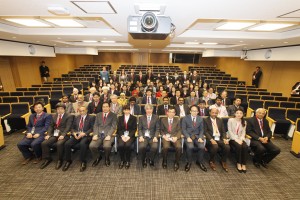
Group Photo
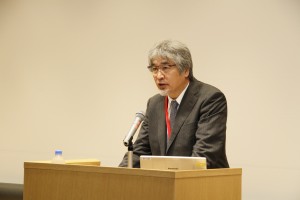
Welcome Address by President Juichi Yamagiwa
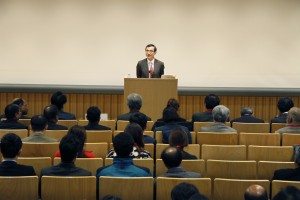
Opening Speech by Prof. Junichi Mori
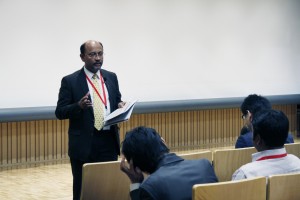
Opening Session
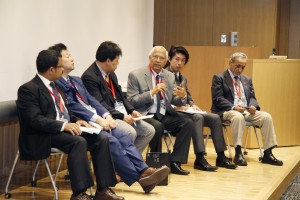
Wrap up Panel discussion
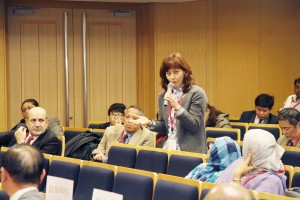
Session 1
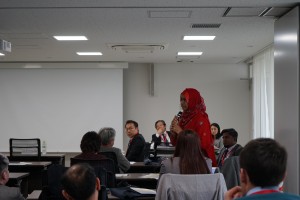
Session2


